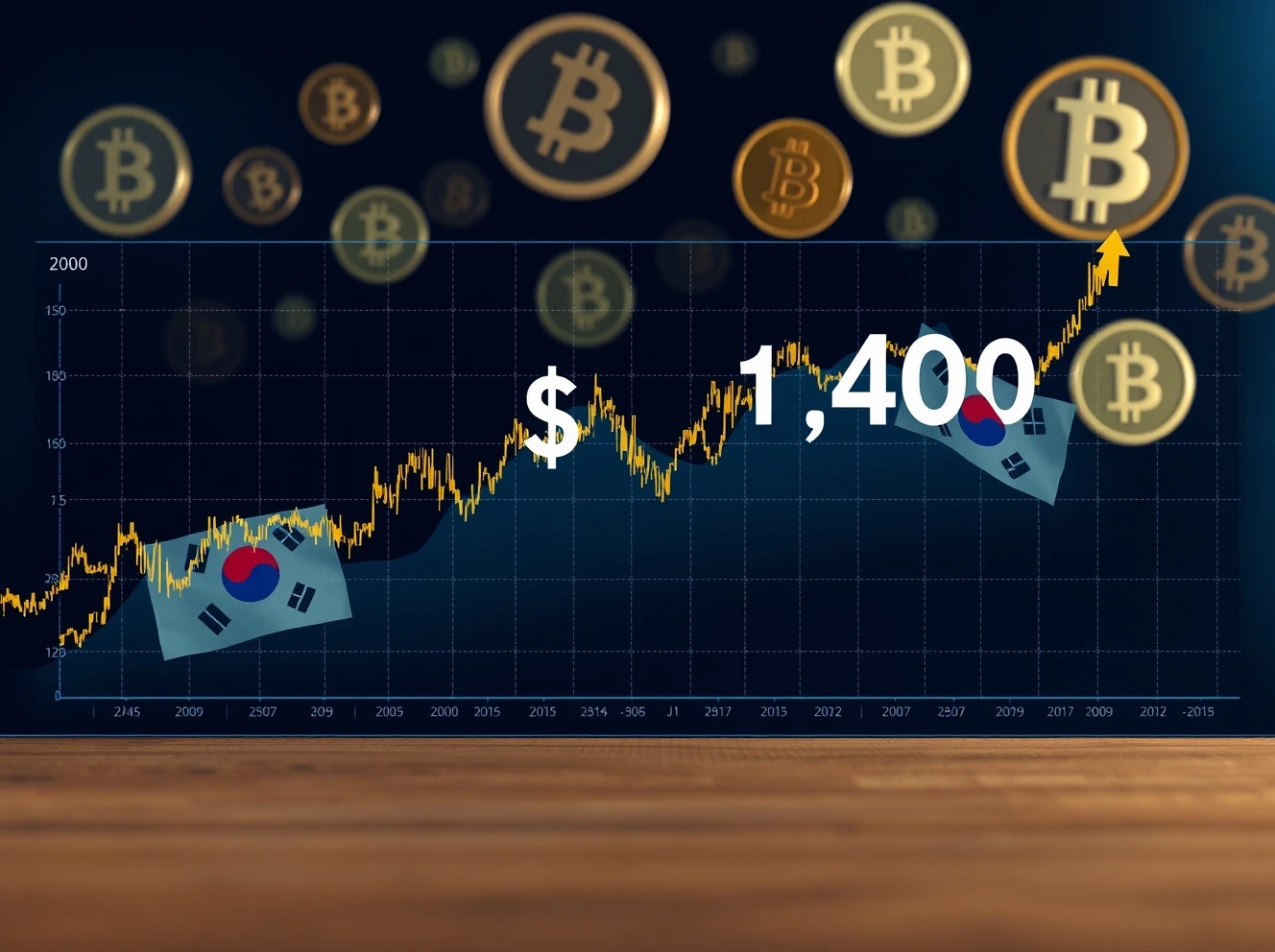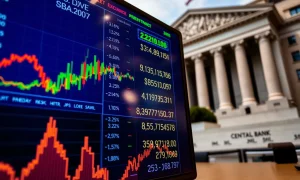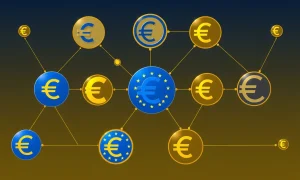The South Korean won weakens past the critical 1,400 threshold against the US dollar, sending ripples through global financial markets and cryptocurrency exchanges. This significant movement marks a pivotal moment for investors navigating both traditional and digital asset landscapes.
Understanding the South Korean Won Weakens Phenomenon
On September 25, financial markets witnessed the South Korean won weaken beyond 1,400 against the US dollar. Consequently, this development represents the first breach of this psychological barrier since August 1. TradingView data confirms the exchange rate settled at approximately 1,401.98, indicating sustained pressure on the Asian currency.
Key Factors Driving the Currency Depreciation
Several interconnected factors contribute to why the South Korean won weakens against major currencies:
- US Federal Reserve Policies: Aggressive interest rate hikes strengthen the dollar globally
- Export Vulnerability: South Korea’s export-dependent economy faces global slowdown risks
- Energy Import Costs: Rising oil prices increase dollar demand for essential imports
- Domestic Economic Pressures: Local inflation and household debt compound external challenges
Crypto Market Implications as South Korean Won Weakens
When the South Korean won weakens significantly, cryptocurrency investors face immediate consequences. Firstly, acquiring dollar-pegged stablecoins becomes more expensive for local traders. Additionally, portfolio management requires careful currency risk assessment. However, some investors might view digital assets as potential hedges against fiat depreciation.
Strategic Approaches for Investors
Investors should consider these actionable strategies when the South Korean won weakens:
- Diversify across multiple currency denominations
- Monitor global economic indicators regularly
- Implement robust risk management protocols
- Stay informed about central bank policy changes
Market Outlook and Future Projections
Financial analysts closely watch how the South Korean won weakens further or stabilizes. Meanwhile, cryptocurrency exchanges in Korea report increased trading volumes. Furthermore, regulatory responses may influence both traditional and digital asset markets.
Conclusion: Navigating Currency Volatility
The South Korean won weakens amid complex global economic conditions. Therefore, investors must maintain vigilance and adapt strategies accordingly. Ultimately, understanding currency dynamics remains crucial for successful portfolio management across all asset classes.
Frequently Asked Questions (FAQs)
What causes the South Korean won to weaken against the dollar?
Multiple factors drive currency depreciation, including interest rate differentials, trade imbalances, and global economic sentiment. Specifically, US monetary policy significantly impacts emerging market currencies.
How does a weaker won affect cryptocurrency trading?
A depreciating won increases costs for Korean investors buying dollar-denominated crypto assets. Consequently, trading volumes and strategies may adjust accordingly.
Should investors convert won to stablecoins during weakness?
Conversion decisions depend on individual risk tolerance and investment horizons. Importantly, investors should consider transaction costs and stablecoin reliability factors.
What historical patterns exist when the won weakens?
Historical data shows correlation between won depreciation and increased crypto trading activity. However, each economic cycle presents unique characteristics.
How long might the current weakness period last?
Currency movements depend on numerous variables. Therefore, predicting duration remains challenging without monitoring ongoing economic developments.
Are there arbitrage opportunities during currency weakness?
Potential arbitrage exists but requires sophisticated trading capabilities and careful risk assessment. Typically, professional traders capture these opportunities.








